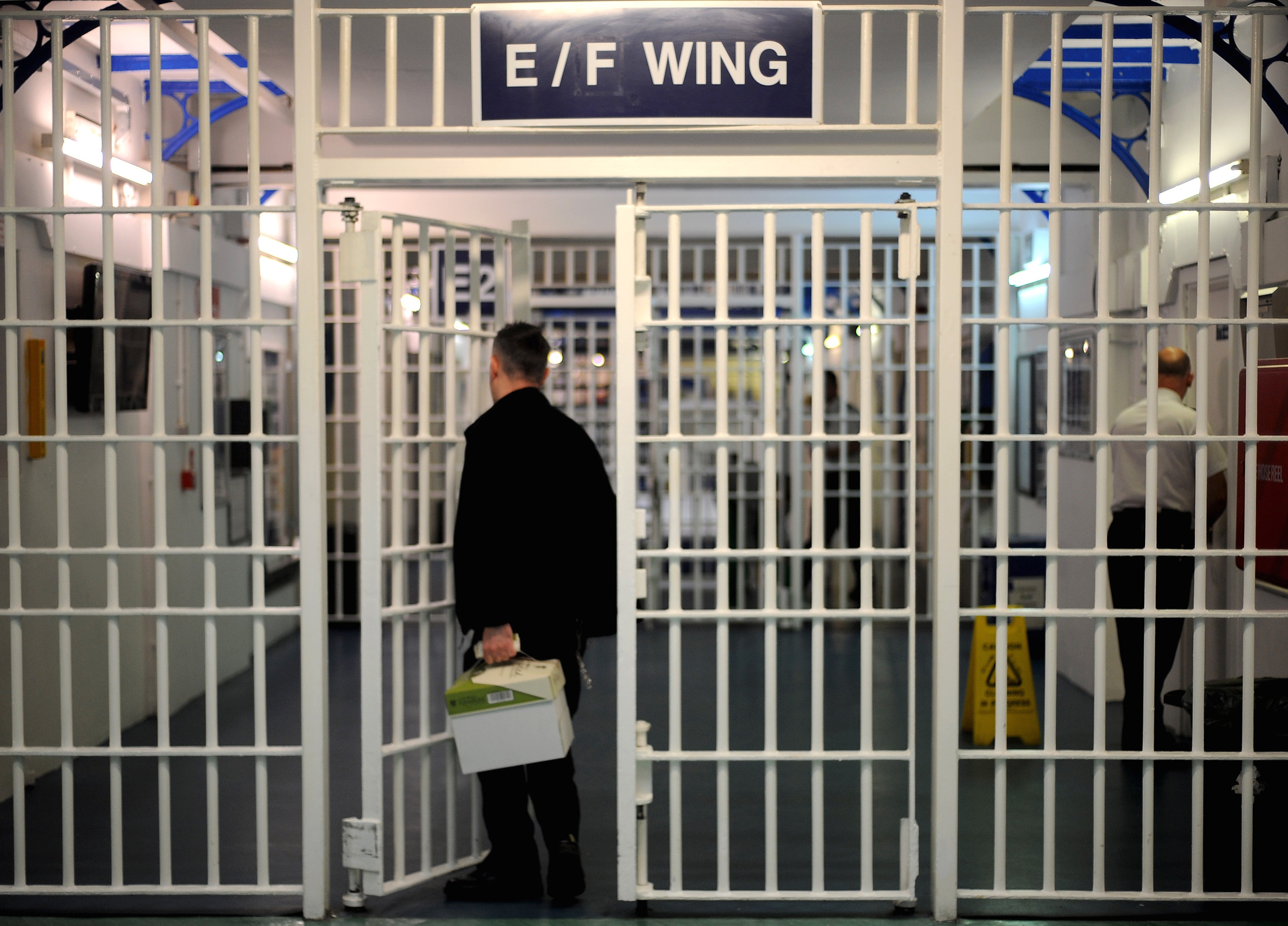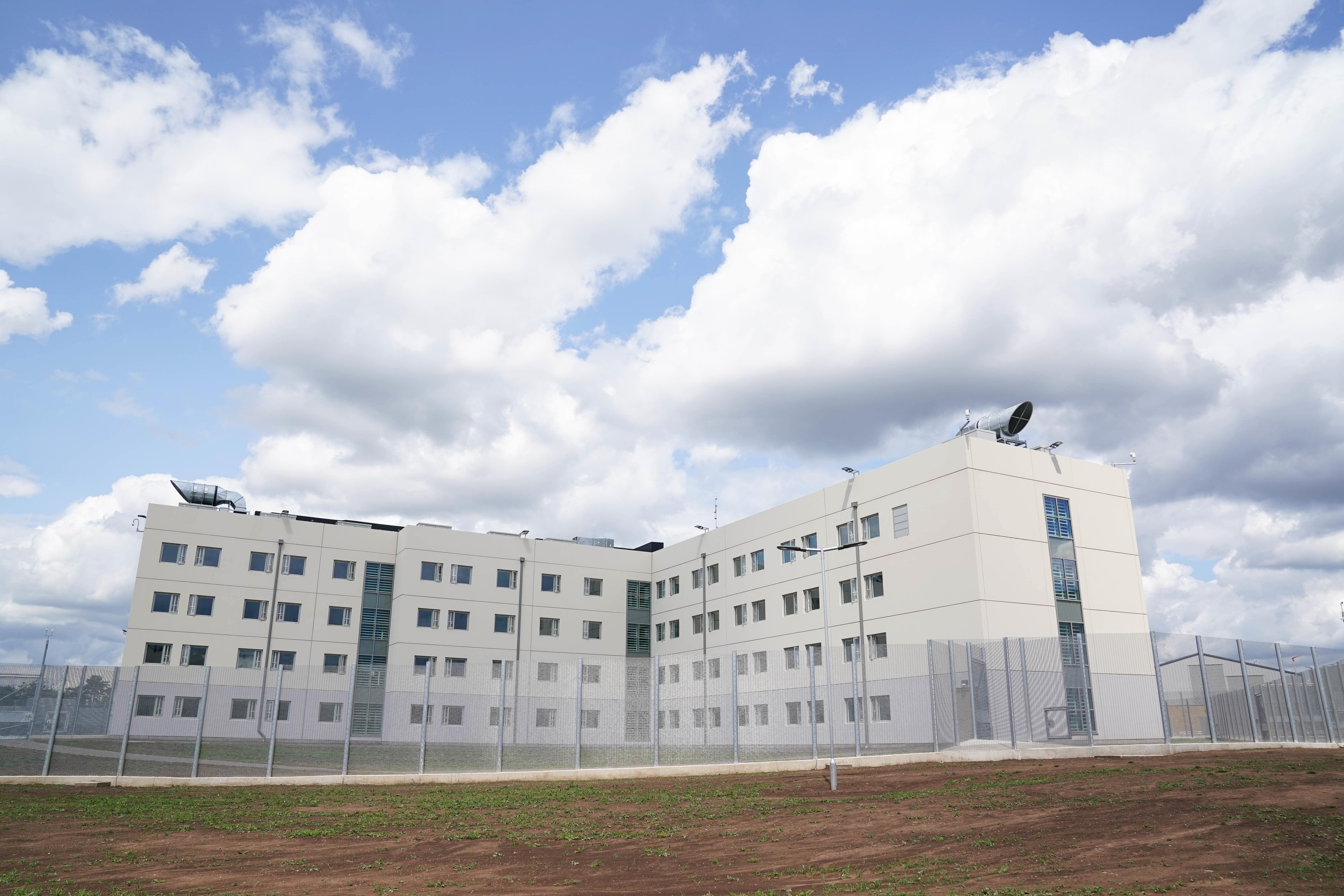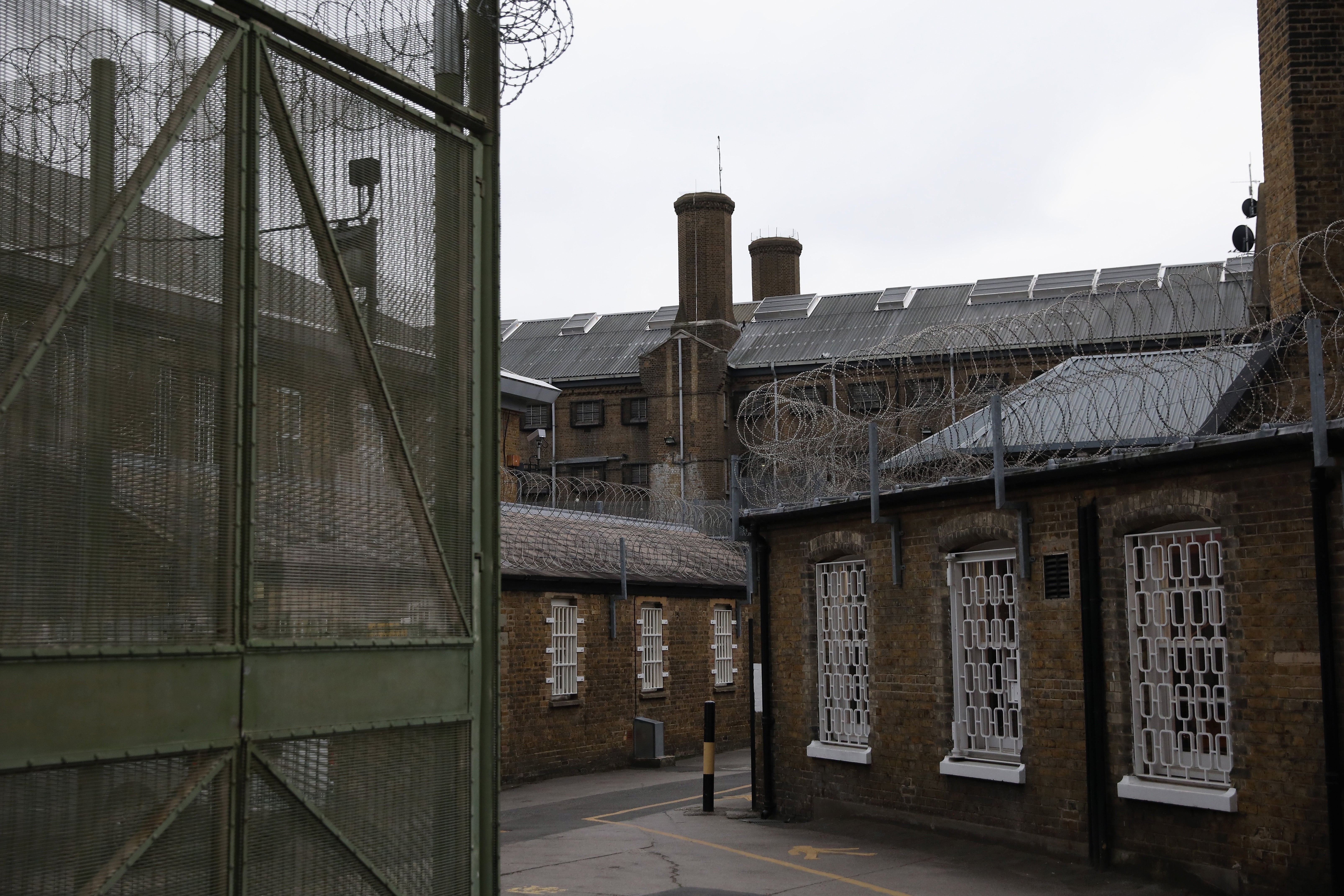Public put in ‘greater danger’ due to failure to rehabilitate prisoners in overcrowded jails
Watchdog warns of potential disorder inside jails as convicts freed more likely to ‘return to reoffending ways’

Your support helps us to tell the story
From reproductive rights to climate change to Big Tech, The Independent is on the ground when the story is developing. Whether it's investigating the financials of Elon Musk's pro-Trump PAC or producing our latest documentary, 'The A Word', which shines a light on the American women fighting for reproductive rights, we know how important it is to parse out the facts from the messaging.
At such a critical moment in US history, we need reporters on the ground. Your donation allows us to keep sending journalists to speak to both sides of the story.
The Independent is trusted by Americans across the entire political spectrum. And unlike many other quality news outlets, we choose not to lock Americans out of our reporting and analysis with paywalls. We believe quality journalism should be available to everyone, paid for by those who can afford it.
Your support makes all the difference.The public is being put in “greater danger” as more prisoners are released from overcrowded jails without rehabilitation, education or training, a watchdog has warned.
HM chief inspector of prisons, Charlie Taylor, warned that failings were making convicts more likely to “return to their offending ways” when they are freed, while worsening conditions inside jails are making disorder and riots more likely.
He said the “government simply hasn't been able to open enough prisons” for the number of inmates, and jails have been clogged up with people awaiting trial because of court backlogs.
“Public protection is critical,” Mr Taylor told a press conference on Wednesday. “Prisons have a function to make sure that people being released get work, pay their taxes, take care of their families.
“Quite simply, if prisoners are not getting any support - if they're not getting to workshops, if they're not getting to education, if they're not getting the training that they need or getting into good habits of work - then the risk is that as soon as they leave the jail, they will revert back to their reoffending ways and that simply creates more victims of crime.”
Mr Taylor said the number of prisons currently failing to rehabilitate inmates was creating “a risk that the public is put in greater danger”.
A damning report revealed that many inmates across England and Wales are still locked up for 22 hours a day, meaning “chronic boredom” and frustration is worsening mental health issues and increasing drug use.
On Tuesday, the conservative chair of parliament’s Justice Committee called the situation a “powder keg”, adding: “Ironically, we have one of the highest rates of imprisonment in Western Europe, we also have one of the worst rates of reoffending. That dichotomy is something that successive governments have failed to address.”
Prison charities called for the government to “address the chronic issues afflicting the system as a whole” as the prison population is forecast to continue rising.
Andrea Coomber, chief executive of the Howard League for Penal Reform, Andrea Coomber KC (Hon.), Chief Executive of the Howard League for Penal Reform, said: “The problems described in today's report will only grow if numbers are allowed to soar, becoming harder, and costlier, to fix.
”Westminster has seen nine changes of justice secretary in eight years, but people living and working in prisons have seen only systemic inertia and malaise. Expanding the prison system even further will prove a historic mistake.”

Overcrowding has hit record levels, with official figures showing almost 86,000 inmates were in jails across England and Wales on Friday - only 1,000 places off the entire prison estate’s “useable operational capacity”.
The government announced an emergency plan to use 400 police cells as overflow in December but it has not stopped numbers climbing rapidly, and a new prison opened last week in Leicestershire will take months to reach full capacity.
The government is building 1,000 portacabins - officially called Rapid Deployment Cells - in a bid to ease overcrowding, while doubling inmates up in Victorian cells designed for one person and accelerating moves into open prisons.
Violent attacks on inmates and staff have fallen since a peak in 2018, but figures are believed to have been suppressed by the sheer amount of time prisoners are locked up, and are now rising.
Mr Taylor warned of the possibility of disorder in “very cramped conditions where they're not let out of their cells for anything like enough time”.
“Because of low staffing levels, there's inconsistency with the regime and prisoners don’t know what is going to be happening day to day,” he said.
“Our concern in jails across the country is that where there's that inconsistency, where prisons are overcrowded, the opportunities for people to get fed up, to start complaining or for fights to spill out is higher.”

Mr Taylor said conditions were particularly bad in some Victorian prisoners like Brixton, Pentonville and Winchester, where two prisoners are being locked in 12ft by 6ft cells with an open toilet in one corner for up to 23 hours a day.
“When that happens, we know that some prisoners will revert to things like self medicating on using drugs, and that will often spill out,” he added.
“Too often we're seeing the cycle of drugs, homelessness, mental health problems and crime being compounded and repeated, even while prisoners are in jail.”
The inspectorate’s report put overcrowding down to a range of factors, including court backlogs meaning that a record number of people are being held before trial, and for longer periods.
Parts of some jails have been shut because there are not enough staff to run them safely, amid a long-running crisis in prison officer recruitment and retention.
Other wings have been shut because of building maintenance and safety issues, and Mr Taylor said the government’s prison-building programme had not kept pace with the number of people entering jail.
Successive Conservative governments have also increased sentences for a range of crimes, and forced a greater portion of them to be served inside jail, and Mr Taylor said the sentence lengths had “gone up considerably”.
The Ministry of Justice said it was investing in education, employment and other support for prisoners, and was still building 20,000 more places.
A Prison Service spokesperson said: “As this report suggests, there is much more work to do but we are making significant progress and the proportion of prison leavers finding work six months after release has doubled, while the report also notes the positive impact of our tougher security measures.
“At the same time, we are recruiting up to 5,000 more prison officers and creating a Prisoner Education Service to ensure offenders have the support and skills they need to turn away from crime for good.”



Join our commenting forum
Join thought-provoking conversations, follow other Independent readers and see their replies
Comments